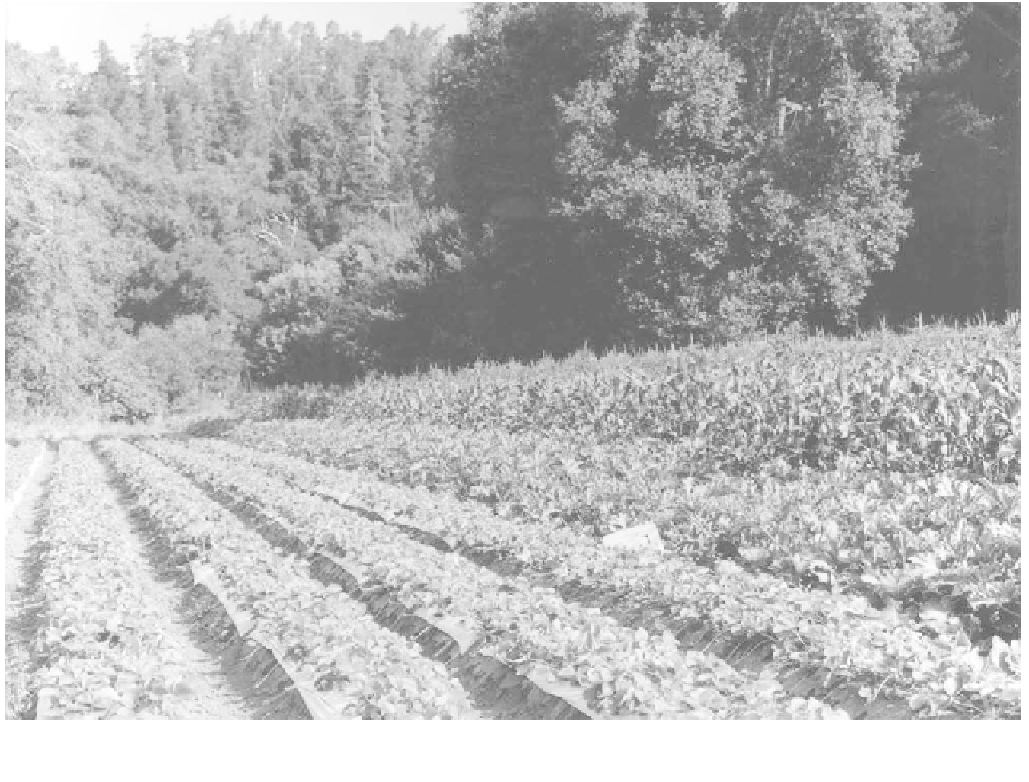Agriculture Reference
In-Depth Information
FIGURE 24.1
A diverse organic farm in Davenport, CA.
On-farm diversity meshes with the off-farm environment as a farmer
extends his view “downstream” from the farm.
The necessity of looking at the entire “stream” means
adopting a whole-systems approach to achieving sustain-
ability. We cannot be content with focusing primarily on
the development of practices and technologies that are
designed for the individual farm. When new technologies
are evaluated primarily on their ability to increase yields
and reduce costs, and only secondarily on how they reduce
negative environmental impacts, they have little hope of
contributing to long-term sustainability. The more com-
plex impacts on the entire agricultural system must be
included in the evaluation (Figure 24.1).
of agricultural inputs and in the prices farmers receive for
their production constantly introduce uncertainty and fluc-
tuations into agricultural production. In response, farmers
are forced to make decisions based on present economic
realities rather than on ecological principles. Many
governments, reluctant to let market forces alone set food
prices, and influenced by various interest groups, employ
price regulations and commodity subsidies that create var-
ious incentives and disincentives not necessarily in line
with sound agroecological practice. Irrigation and recla-
mation projects, import/export policies, and agricultural
research programs — all of which affect agriculture
directly or indirectly — are generally undertaken on the
basis of the short-term economic gain they can realize. In
the developing world, governmental concerns about food
security, the balance of trade, the development of export
markets, and the attraction of foreign investment can result
in policies with direct impact on farmers and their ability
to continue producing food sustainably (Figure 24.2).
A basic problem with market economics is that it
creates a context in which the short-term view completely
overwhelms the long term. Even when there is agreement
that long-term needs are important, economic realities
dictate that short-term goals — this year's profit, next
B
EYOND
THE
B
OTTOM
L
INE
Agriculture is very much an economic activity. A farming
operation that is not economically viable will not exist for
very long. Nevertheless, if economic factors — narrowly
defined — remain the most import criteria for determining
what is produced and how it gets produced, agriculture
can never be sustainable over the long term.
The forces at work in a market-based economy, along
with the various political structures put in place to regulate
them, are very often at odds with the goals of sustainability
(Ikerd, 2005). Market-determined variations in the costs

Search WWH ::

Custom Search